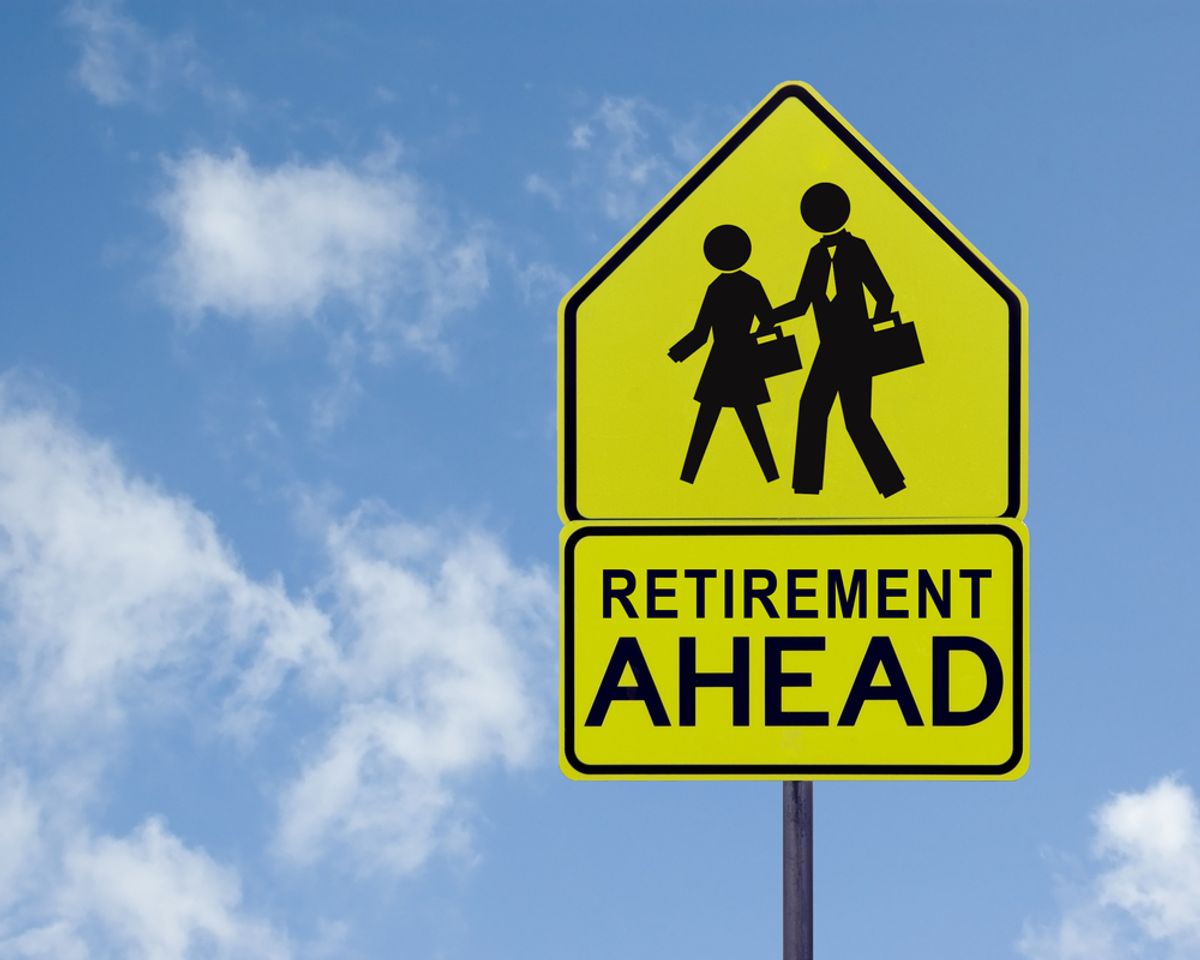 The dream of a comfortable retirement is dying for many Americans. It's being extracted as a form of tribute to the very rich, a redistribution of our nation's wealth, a "tax" imposed on the middle and lower classes and paid for with their retirement savings.
The dream of a comfortable retirement is dying for many Americans. It's being extracted as a form of tribute to the very rich, a redistribution of our nation's wealth, a "tax" imposed on the middle and lower classes and paid for with their retirement savings.
1. A $6.8 Trillion Retirement Deficit in America. But $8 Trillion in New U.S. Wealth Was Created in 2013.
The problem is that most of the new financial wealth went to the richest 10% (almost 90 percent of all stocks excluding fast-disappearing pensions). Basically you already had to be rich to share in the new wealth, and the people taking the wealth can defer taxes as long as they want, and then pay a smaller rate than income earners. Meanwhile, according to the National Institute on Retirement Security, Americans are at least $6.8 trillion short of what they need for a comfortable retirement.
2. $6,500 is the Median Retirement Fund for Upper-Middle-Class 50- to 64-Year-Olds
That's based on an analysis of the second-highest quartile of Americans by the Schwartz Center for Economic Policy Analysis. It may get worse before it gets any better. The percentage of 75- to 84-year-old seniors falling into povertydoubled from 2005 to 2009. That was BEFORE the recession. And the number of elderly Americans, notes the Administration on Aging, is steadily rising, likely by 75 percent between 2010 and 2030, to almost 70 million people.
3. ZERO Wealth Gained among 93% of Us, While the Richest 12,000 Families Made $100,000 EVERY Day
It's estimated that the richest .01% each made at least $40 million last year. A work day for many of them consists of logging in to their portfolio to see how many tens of thousands of dollars were added in the previous 24 hours. A stunning 93 percent of Americans LOST wealth, on average, in the post-recession "recovery."
4. TWICE the Cost of Pensions -- That's What Ten States Pay in Corporate Subsidies
This comes from a study by Good Jobs First of ten states with severe pension issues. The study found that "in all 10 states, the total annual cost of corporate subsidies, tax breaks and loopholes exceeds the total current annual pension costs."
Americans who have worked all their lives, dutifully paying for their retirement years, continue to be accused of greed and threatened with pension cutbacks. David Cay Johnston calls it "nothing short of theft."
5. 40 Cents of Every 401(k) Dollar Goes to the Banks
Saving $1,000 a year for 30 years in a non-fee 401(k) fund and then holding the accumulated sum for another 20 years would net an investor $269,000. With a smallish-sounding industry average fee of 1.3%, the same investor would net just $165,000, a 39% reduction.
6. Two Dollars: The Approximate Wealth of Black Families for Every $100 of Wealth for White Families
According to the Economic Policy Institute (EPI), median wealth for black families in 2009 was $2,200, compared to $97,900 for white families. ( Pew Research reported $5,677 for blacks, $113,149 for whites).
It doesn't seem possible that this number could get worse. But since the recession, black and Hispanic wealth has dropped further, by 30 to 40 percent, as the wealth of white families dropped 11 percent.
7. Almost 10 Percent of an Underserved Household's Retirement Money Goes for Financial Fees
A U.S. Office of Inspector General survey reports that "The average underserved household has an annual income of about $25,500 and spends about $2,412 of that just on alternative financial services fees and interest." That includes fees for payroll cards, prepaid cards, subprime auto loans, and numerous other financial products that are sold to over 68 million financially underserved U.S. households.
A Death Tax? It's not the tiny amount paid on multi-million dollar estates. Instead, it's the slow death of millions of baby boomers, the victims of 35 years of deregulated greed at the very top of our nation's mountain of wealth.



Shares